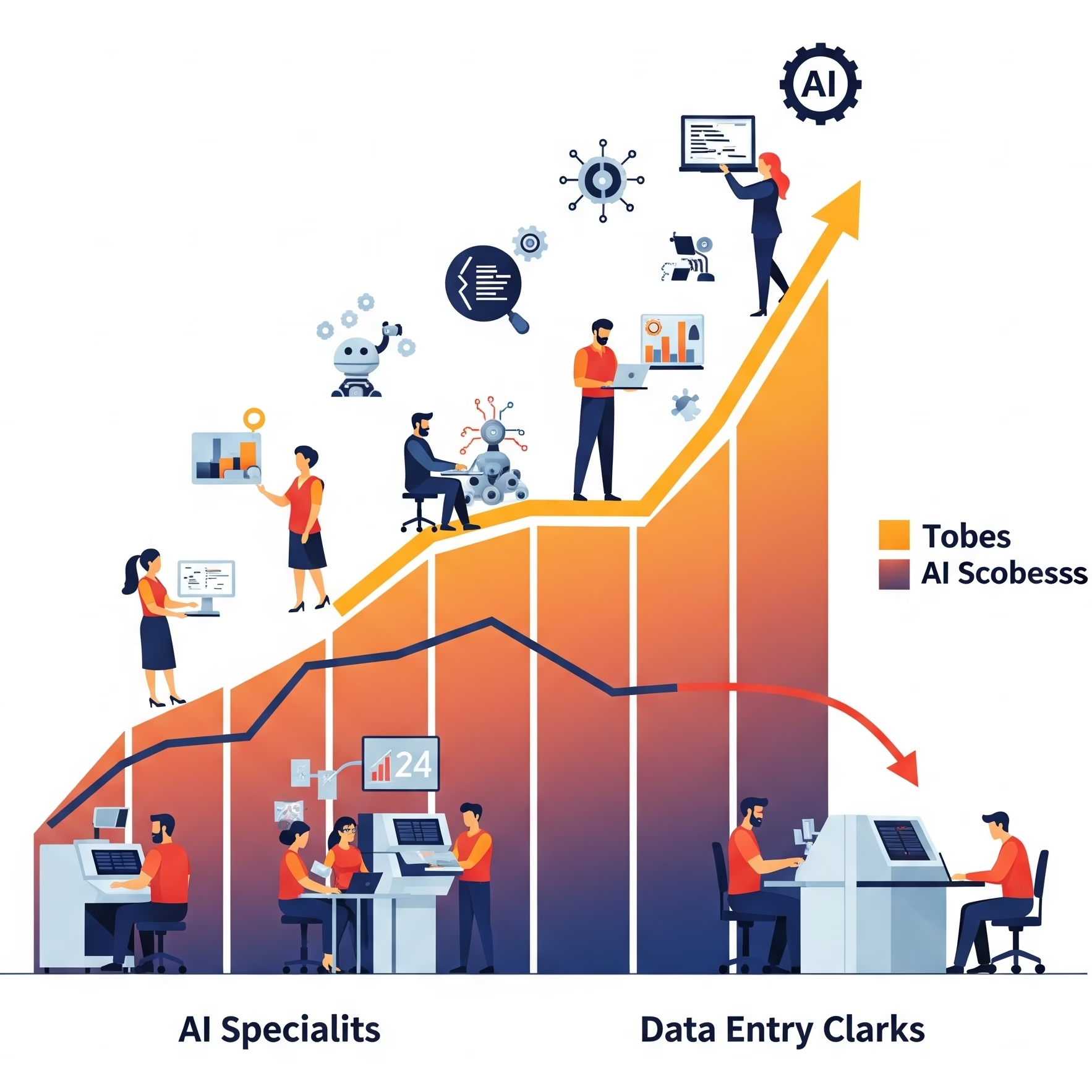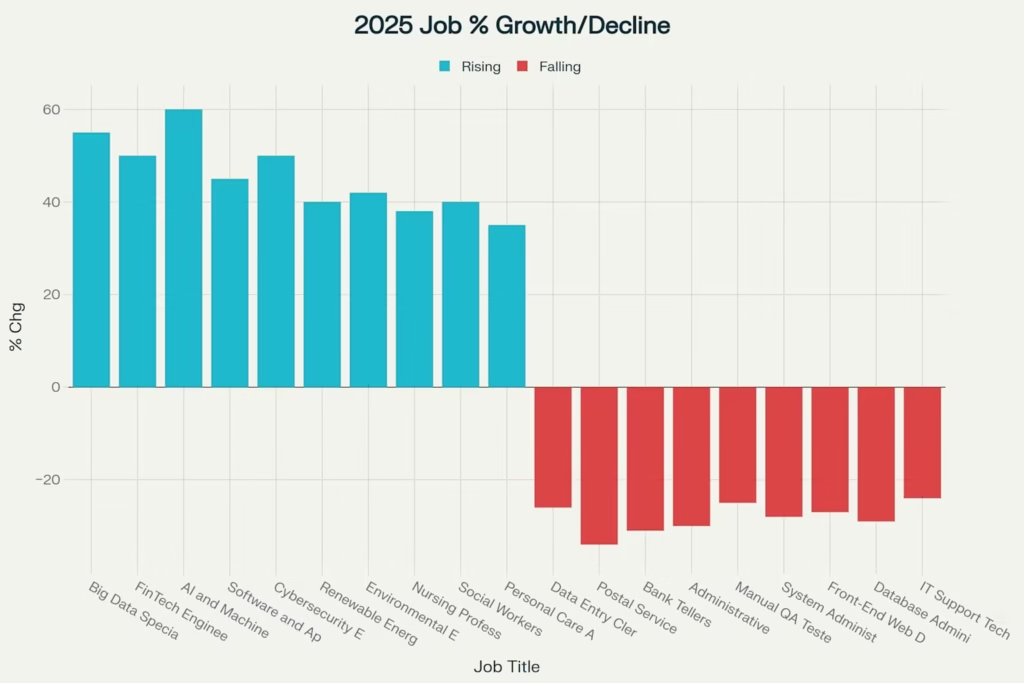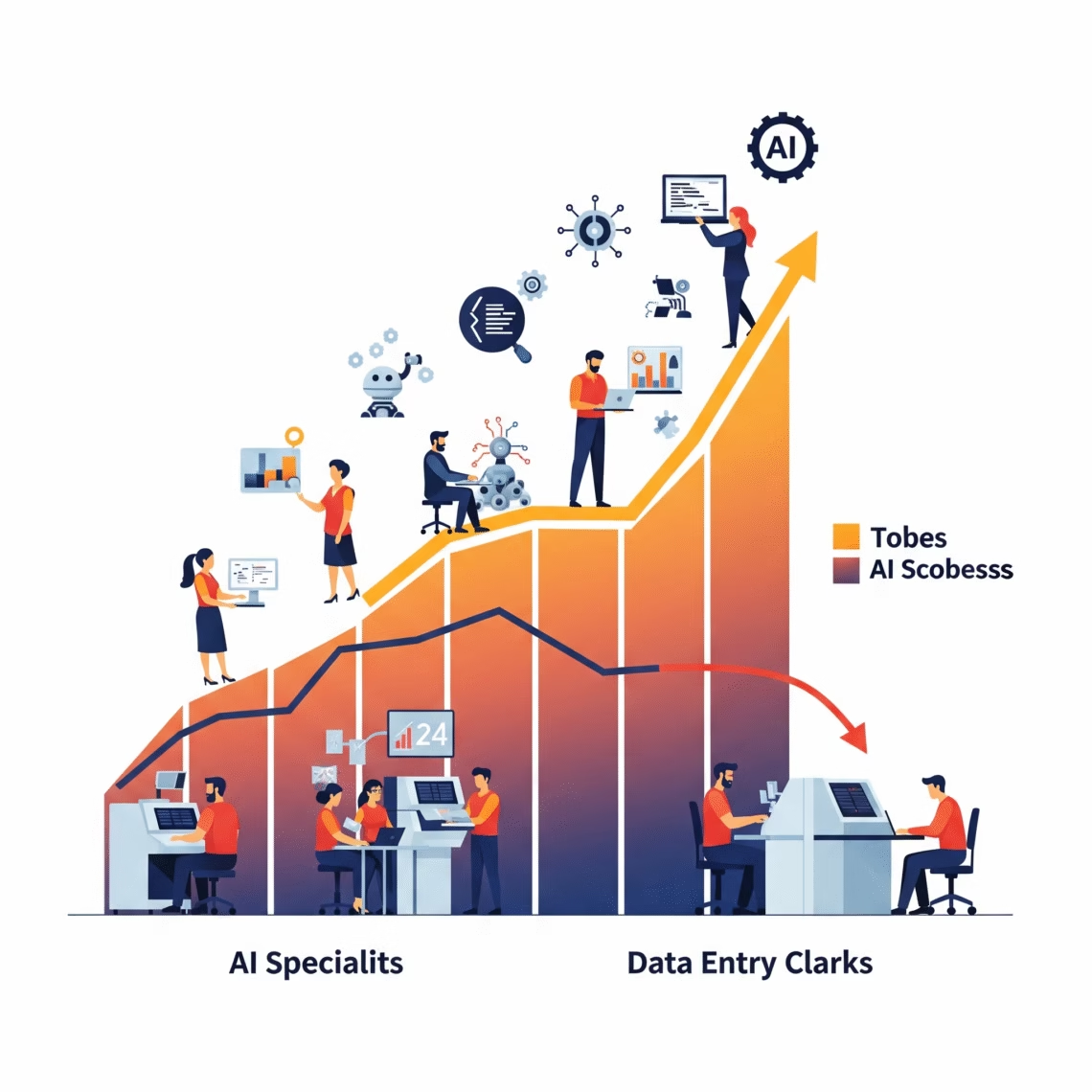Job Renaissance: The Emotional Uplift of AI Careers and the Ebbing of Mundane Roles
Discover which jobs are losing momentum and which new roles are shaping the future of work in the age of AI and automation.
Job Trends 2025: The Rise of Tech & Care Roles and the Decline of Traditional Office Jobs
The job market is undergoing a dramatic transformation driven by artificial intelligence (AI), automation, and the global shift toward sustainability and digitalisation. As certain roles become obsolete, new professions are emerging at an unprecedented pace. Understanding these trends is essential for anyone looking to future-proof their career.

Jobs Losing Their Spark: The Decline of Traditional Roles
Many once-prominent roles are rapidly losing relevance as technology automates routine tasks. According to the World Economic Forum’s Future of Jobs Report 2025, the following positions are among the fastest-declining jobs:
- Data Entry Clerks: Automation and AI-driven data processing are drastically reducing the need for manual data entry.
- Postal Service Clerks: Digital communication and logistics technology are replacing traditional mail services.
- Bank Tellers: Online banking and ATMs have led to a sharp decline in demand for in-person tellers.
- Administrative Assistants: AI-powered office tools and virtual assistants are streamlining administrative workflows.
- Manual QA Testers: Automated testing frameworks are reducing the need for manual quality assurance.
- System Administrators: Cloud computing and managed IT services are changing the infrastructure landscape.
- Front-End Web Developers: Low-code/no-code platforms are making web development more accessible, reducing demand for specialized roles.
- Database Administrators: AI-driven database management and cloud solutions are automating many DBA tasks.
- IT Support Technicians: Self-service troubleshooting and AI chatbots are replacing traditional IT support roles.
These roles are expected to decline by 24% to 34% over the next few years as automation and digital transformation accelerate.
Emerging Jobs: The Future is Here
The same forces that are displacing traditional jobs are creating exciting new opportunities. The fastest-growing roles are concentrated in technology, AI, cybersecurity, green energy, and healthcare:
- Big Data Specialists: Experts who manage and analyze massive datasets to drive business decisions.
- FinTech Engineers: Professionals who develop innovative financial technology solutions.
- AI and Machine Learning Specialists: Specialists who design, train, and deploy AI models across industries.
- Software and Applications Developers: Developers who build the digital tools and platforms of the future.
- Cybersecurity Experts: Professionals who protect organizations from digital threats.
- Renewable Energy Engineers: Engineers who design and implement sustainable energy solutions.
- Environmental Engineers: Specialists who address environmental challenges through technology.
- Nursing Professionals: Healthcare workers who support aging populations and medical advancements.
- Social Workers: Professionals who provide essential support in mental health and community services.
- Personal Care Aides: Caregivers who assist individuals with daily living needs.
These roles are experiencing growth rates of 35% to 60% as demand for digital, green, and care skills skyrockets.
Visualizing the Shift: Rising vs. Declining Jobs
The bar graph below illustrates the percentage growth of emerging jobs and the percentage decline of traditional roles in 2025. This visual highlights the dramatic changes reshaping the workforce.
Summary Table: Rising vs. Declining Jobs
| Rising Jobs (Growth %) | Declining Jobs (Decline %) |
|---|---|
| Big Data Specialists (55%) | Data Entry Clerks (26%) |
| FinTech Engineers (50%) | Postal Service Clerks (34%) |
| AI and Machine Learning Specialists (60%) | Bank Tellers (31%) |
| Software and Applications Developers (45%) | Administrative Assistants (30%) |
| Cybersecurity Experts (50%) | Manual QA Testers (25%) |
| Renewable Energy Engineers (40%) | System Administrators (28%) |
| Environmental Engineers (42%) | Front-End Web Developers (27%) |
| Nursing Professionals (38%) | Database Administrators (29%) |
| Social Workers (40%) | IT Support Technicians (24%) |
| Personal Care Aides (35%) |

Rising vs. Declining Jobs (2025)
The bar graph visually compares the percentage growth of emerging jobs (such as AI specialists and renewable energy engineers) with the percentage decline of traditional roles (like data entry clerks and bank tellers) in 2025
What This Means for Job Seekers
The key takeaway is clear: adaptability and continuous learning are more important than ever. As two-fifths of existing skills are expected to become outdated by 2030, workers must focus on upskilling in areas such as analytical thinking, AI, big data, cybersecurity, and caregiving.
Employers are prioritizing resilience, flexibility, and social influence alongside technical expertise. The most sought-after skills include analytical thinking, leadership, and the ability to work with AI and digital tools.
How to Stay Ahead
- Embrace Lifelong Learning: Invest in courses and certifications in AI, data science, cybersecurity, and green technologies.
- Develop Soft Skills: Strengthen communication, problem-solving, and adaptability to complement technical abilities.
- Explore Emerging Sectors: Consider roles in AI, healthcare, renewable energy, and care services.
- Network and Collaborate: Connect with professionals in growing fields to stay informed and discover new opportunities.
Conclusion
The job market is evolving rapidly, with traditional roles fading and new, exciting opportunities emerging. By staying informed and proactive, you can navigate these changes and build a resilient, future-proof career.
Ready to explore the jobs of tomorrow? Discover more career insights at UseGenix!
Stay in the loop










